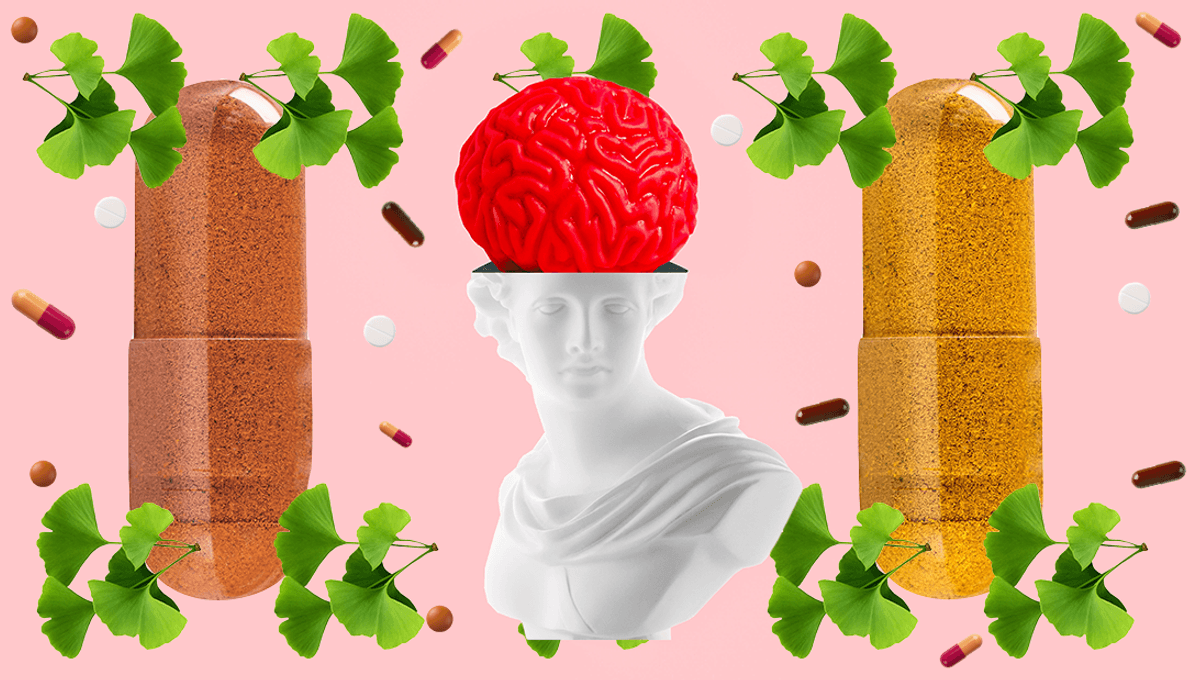
The film Limitless introduced many to the concept of nootropics: pop a pill and, just like magic, your brain can suddenly work unimaginably quickly and efficiently. It’s an enticing idea that such a drug could exist in real life – and now, some are claiming that it does, although perhaps not quite to the same extremes as in the movies. But do any of these nootropics actually work at all?
What are nootropics?
Nootropics, also known as smart drugs or cognitive enhancers, are substances that some claim can improve the cognitive function of healthy people, expanding their capacity for memory, learning, and knowledge. In essence, some people believe that they make you smarter.
There are all kinds of substances that could be considered to fall under this definition, but they’re typically put into three categories: prescription drugs, including those that are usually given for conditions like attention deficit hyperactivity disorder (ADHD), such as Ritalin, Adderall, and eugeroics, a class of drugs that promote wakefulness; over-the-counter pills, like racetams; and dietary supplements.
The last is the broadest of them all. Nootropic dietary supplements can range from substances that many of us consume on a regular basis, like caffeine and fish oils, through to herbal supplements and extracts like ginkgo and ashwagandha.
Do nootropics work?
Let’s get things straight right off the bat – there’s no magic pill out there that’s going to work the same way it does for Bradley Cooper’s character. That’s probably a good thing too, considering his use of the drug lands him in all kinds of trouble.
That’s not to say that real-life nootropics have no effect on the brain at all, but it also depends on what those substances are, and who is taking them. For example, prescription medications like Ritalin can have a demonstrable impact on people with ADHD; it doesn’t make them smarter, but it does help to improve their concentration and reduce restlessness.
For that same reason, drugs that are typically used to treat ADHD symptoms have also become popular “study drugs” for those without the condition, in the hopes that people will be able to stay focused when they’re cramming for exams. However, according to a 2023 study from researchers at the University of Cambridge and the University of Melbourne, taking study drugs when you’re healthy might actually lead to the opposite of the desired effect.
In a series of trials, 40 healthy participants took one of three study drugs – methylphenidate (Ritalin, Concerta), modafinil (a eugeroic), or dextroamphetamine (one of the stimulant components of Adderall) – or a placebo, and were then asked to complete a problem-solving task.
Compared to the placebo group, those who were given a study drug typically performed slightly worse on the task; they had increased motivation, but they also took longer, and were less accurate and efficient.
“Our research shows drugs that are expected to improve cognitive performance in patients may actually be leading to healthy users working harder while producing a lower quality of work in a longer amount of time,” said lead author Dr Elizabeth Bowman in a statement.
When it comes to nootropic dietary supplements, the state of affairs is even less convincing. That’s mainly because dietary supplements aren’t approved by the US Food and Drug Administration (FDA), which means they’ve not gone through the rigorous testing required to demonstrate that they’re effective (or safe) in what they might claim to do.
That doesn’t mean there’s been no research into their effectiveness at all, however. In fact, a 2022 systematic review of research into plant-derived nootropics and their cognitive effects analyzed a total of 256 papers on the topic.
However, while this review identified some research that suggests that extracts of plants such as ginkgo and Bacopa monnieri might have an impact on functions like learning and memory, there are also multiple limitations including: different extraction methods; different dosages; inconsistent study design; and lack of consideration for the lifestyle factors that might influence results, such as diet and other medications.
In other words, 256 papers might sound like a lot, but there’s still a long way to go to demonstrate that this group of nootropics actually does what it says on the tin.
Are nootropics safe to use?
Whether or not they work isn’t necessarily going to stop someone from giving nootropics a go anyway, which means it’s also important to consider if they’re safe.
When it comes to prescription drugs, they should only be used by someone if they’ve been prescribed them; not only might they be more of a hindrance than a help, as we’ve seen above, but these drugs also aren’t without side effects. Methylphenidate or Ritalin, for example, can have mild side effects ranging from headaches, nausea, and insomnia, through to serious mood or personality changes, heart palpitations, hallucinations, and allergic reactions.
As for dietary supplements, the lack of FDA approval means there’s no guarantee that they contain what the packaging says they do – and even if they did, there’s also no guarantee that particular ingredient is safe for human consumption either.
If someone is thinking about taking something that’s a nootropic – or claims to be – the best thing to do is to speak with a medical professional.
All “explainer” articles are confirmed by fact checkers to be correct at time of publishing. Text, images, and links may be edited, removed, or added to at a later date to keep information current.
The content of this article is not intended to be a substitute for professional medical advice, diagnosis, or treatment. Always seek the advice of qualified health providers with questions you may have regarding medical conditions.
Source Link: Nootropics: Do "Smart Drugs" Really Make You Smarter?